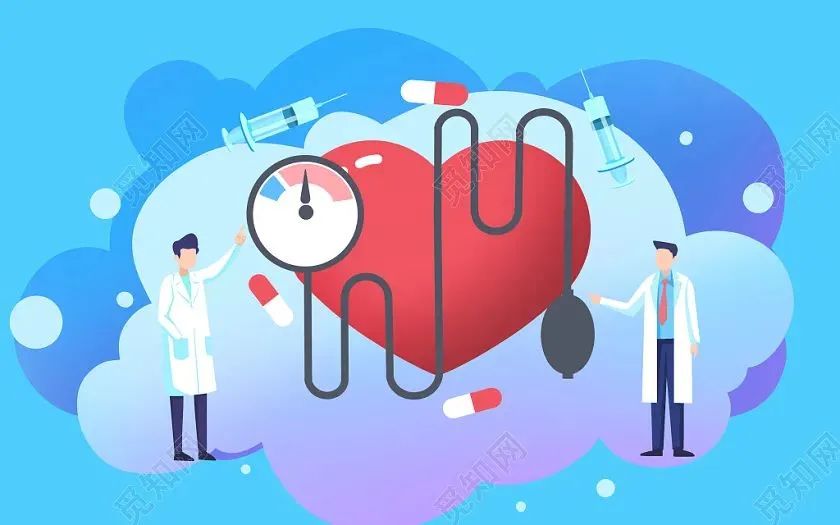
The source of medicine and food is the same; eating leads to health. Dietary health preservation, also known as “food therapy,” refers to the rational selection and processing of food based on the characteristics of food under the guidance of TCM theory, aiming to nourish the essence and qi, balance yin and yang, and prevent diseases. As the saying goes, “Food supplements are better than medicinal supplements.” Regular consumption can strengthen the body, allowing for dietary therapy for minor ailments and food therapy for major illnesses. Health begins with eating, let’s enjoy healthy food with our families and build a strong physique through diet.
Next
Let’s follow Zheng Aihong, Deputy Director of the TCM Department,
to understand the miraculous effects of
the dual-use of “Hong Zao” (Red Dates) in TCM culture.

A common saying goes, “Three dates a day, live forever.” The sweet and delicious red dates are loved by many. Can everyone eat them? How can they be eaten more healthily?
As early as in the “Shen Nong’s Herbal Classic,” it was pointed out that Da Zao (Red Dates) is sweet in taste, neutral in nature, and non-toxic. Its main effects are to eliminate evil qi from the heart and abdomen, regulate stomach qi, nourish spleen qi, open the nine orifices, assist the twelve meridians, benefit the body, stop severe palpitations, and relieve the heaviness of the limbs. Long-term consumption can tonify the middle and benefit qi, eliminate chest discomfort, and prolong life.
Correct ways to eat red dates:
There are many ways to consume red dates, including steaming, stewing, braising, and boiling. The most common method is to decoct red dates in water, which does not affect the liver-protecting effects of the herbs and avoids diarrhea caused by eating them raw. Wash 10-30 grams of red dates, make shallow cuts on their surface to help the nutrients seep out, then add an appropriate amount of water and boil for about 1 hour. Red dates can also be added to porridge to make date porridge.
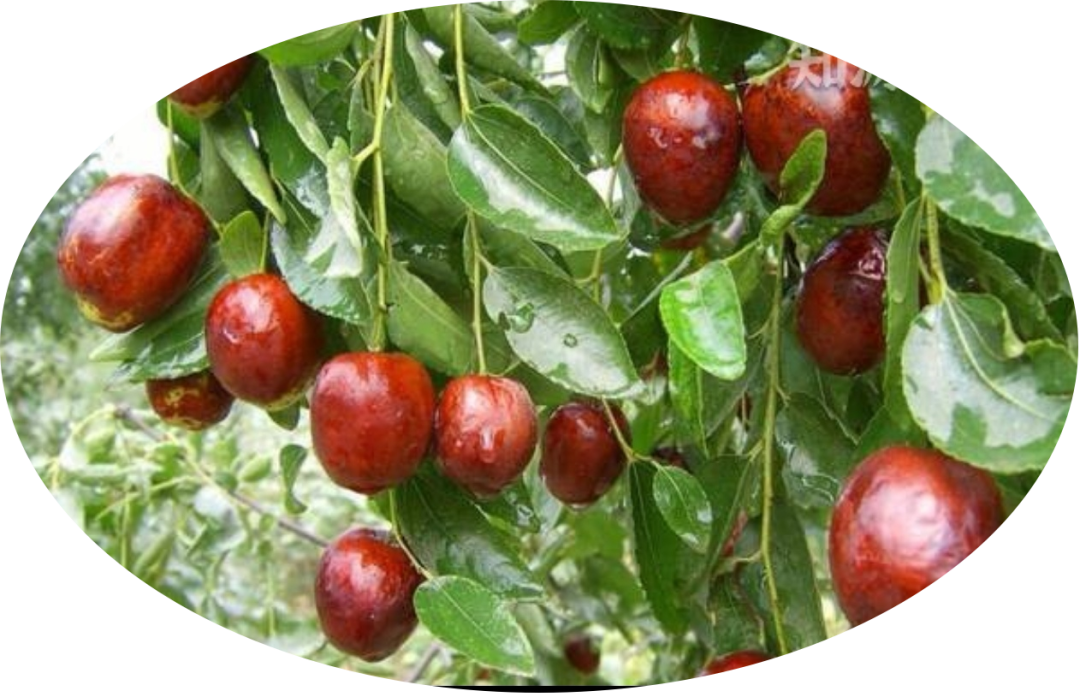
Red Date Tea:
Ingredients: 12 red dates; 8 grams of tea leaves; appropriate amount of brown sugar.
Method: First, place the cleaned red dates and tea leaves in a pot, add water and brown sugar, and boil until the red dates are soft. Strain out the tea leaves and drink the prepared tea.
Effects: Nourishes blood and strengthens the spleen and stomach.

Red Date and Angelica Porridge:
Ingredients: 15 grams of Angelica (Dang Gui), 50 grams of red dates, 20 grams of white sugar, 50 grams of japonica rice.
Method: Soak the Angelica in warm water for a while, add 200 grams of water, first decoct to obtain 100 grams of concentrated juice, strain out the residue, and then add it to the japonica rice, red dates, and white sugar with an appropriate amount of water, and cook until it becomes porridge.
Dosage: Take warm in the morning and evening, with a course of 10 days.
Effects: The porridge made with red dates and Angelica has the functions of nourishing blood, promoting blood circulation, relieving pain, and moistening the intestines to relieve constipation, suitable for those with insufficient qi and blood, blood deficiency headaches, dizziness, and constipation.
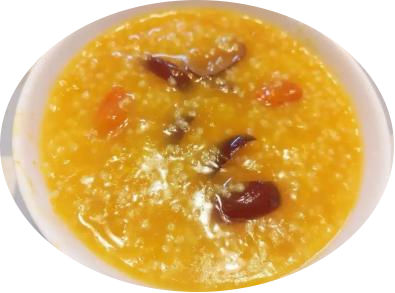
People who should avoid eating red dates
1. Those with excessive phlegm and dampness: Such individuals often present with thick and greasy tongue coating, sweet or greasy mouth, poor appetite, and often feel bloated in the stomach. In severe cases, they may experience dizziness, nausea, vomiting, and swelling of the eyelids and face. The cloying nature of red dates can exacerbate dampness, making it difficult to eliminate phlegm and worsening the above discomfort. People with this constitution are more suited to eat Job’s tears, red beans, yam, and loofah, which are beneficial for the spleen and dampness.
2. Those prone to heat: Individuals with a heat-prone constitution often experience symptoms of constipation, bad breath, and sore throat, and gums. Red dates are sweet and warm in nature, and if consumed in large quantities, can exacerbate heat symptoms, akin to adding fuel to the fire.
3. Patients in the early stages of a cold: In the early stages of a cold, the invading wind-cold or wind-heat evil is strong. If red dates are consumed at this time, their sticky nature can often lead to the retention of evil qi, resulting in the consequence of “closing the door to the enemy,” making it difficult to expel the pathogenic evil from the body, which is not conducive to recovery.
4. Diabetic patients: Red dates contain a high sugar content, which can raise blood sugar levels in diabetic patients, worsening their condition. Therefore, those with high blood sugar should avoid eating red dates.
Foods that should not be paired with red dates
1. Red dates + scallions: Can lead to indigestion.
Red dates can tonify the spleen and stomach, benefit qi and generate fluids, nourish the heart and lungs, and calm the spirit. Scallions can remove fishy odors and stimulate the secretion of digestive juices, enhancing appetite.
However, combining the two can easily lead to indigestion. Furthermore, TCM believes that scallions are spicy and warming foods, while red dates are sweet and warming, and eating them together can exacerbate heat.
2. Red dates + crabs: Can easily cause cold-heat diseases.
Red dates and crabs are incompatible; eating them together can easily lead to cold-heat diseases, and they should be consumed with at least a 2-hour interval.
3. Red dates + animal liver: Destroys vitamins.
Red dates should not be eaten with animal liver. Animal liver is rich in copper, iron, and other elements, which can easily oxidize the vitamin C in other foods, causing them to lose their efficacy. Therefore, red dates should not be consumed with animal liver.
4. Red dates + milk: Affects protein absorption.
After eating red dates, do not immediately consume high-protein foods, such as dairy products. This is because vitamin C can cause the proteins in these foods to coagulate, making them difficult to absorb. It is advisable to wait 1-2 hours after eating red dates before consuming high-protein foods.
5. Red dates + Xuan Shen (Scrophularia): Functional incompatibility.
Xuan Shen has excellent heat-clearing and detoxifying properties, which can prevent and alleviate fever, sore throat, and other conditions. Since it is a cold food, it can prevent and treat warm-heat diseases.
Red dates are sweet and warm in nature, with functions of tonifying the spleen and stomach, benefiting qi and generating fluids. They should not be eaten together with red dates, as their effects and functions are completely opposite.
Contraindications for eating red dates
1. Date skin: The skin of red dates is difficult to digest, so it must be chewed thoroughly.
2. Dental health: The high sugar content in red dates can be harmful to teeth. If too many red dates are consumed without adequate water intake, it can easily lead to cavities. Those already suffering from dental issues should avoid eating red dates.
3. Red dates should not be eaten with cucumbers or radishes. Radishes contain ascorbic acid enzymes, and cucumbers contain vitamin-decomposing enzymes, both of which can destroy the vitamins in other foods.
4. Red dates should not be eaten with animal liver. Animal liver is rich in copper, iron, and other elements, which can easily oxidize the vitamins in other foods, causing them to lose their efficacy.
5. Do not eat red dates while taking antipyretic medications. Consuming high-sugar foods while taking antipyretic medications can easily form insoluble complexes, reducing the initial absorption rate of the medication. Since red dates are high in sugar, they should not be eaten with antipyretic medications.
Expert Introduction


Zheng Aihong Deputy Director of the TCM Department, Associate Chief Physician
Specializes in the integrated treatment of common internal diseases and chronic diseases with TCM and Western medicine. Treats menopausal syndrome, dizziness, headaches, depression, insomnia, constipation, and other common chronic diseases with classical and contemporary formulas. Conducts TCM constitution identification for disease prevention and treatment. Regulates sub-health states.

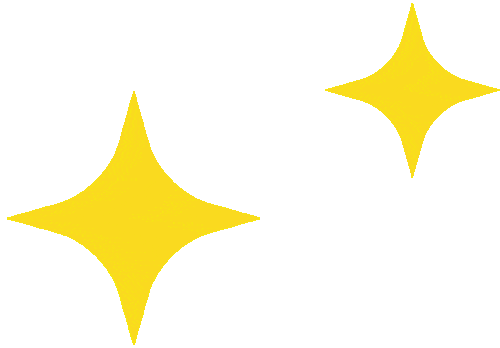
Source: Zheng Aihong
Editor: Wu Tingting
Initial Review: Ding Jianfeng
Final Review: Wang Peng
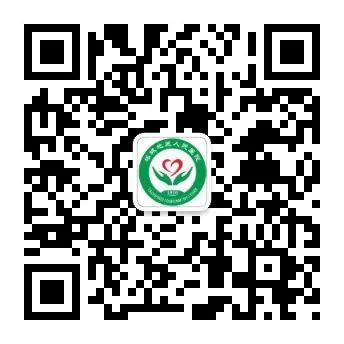
Saving lives, caring for health
Patients first, honest service

China Medical University Tacheng Hospital
WeChat ID: tcdqrmyy
Address: No. 22 Wenhua Road, Tacheng City, Xinjiang

